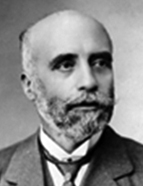

Leite published verses and began writing about popular history and language. He managed to enlist the collaboration of Fialho de Almeida, Antero de Quental, Teófilo Braga, Martins Sarmento and Adolfo Coelho.
The fortnightly journal closed within a year of publication due to a lack of readership. Most of its contents fell within the scope of what was widely termed “sociology”, including archaeology, history, travels, mythology, religions and popular traditions, linguistics (Portuguese popular language and Galician subdialects), philosophy, political economy, bibliography, and biographies.
Initially, Leite was interested in both archaeology and dialectology, collecting contributions from each field for the ethnographical characterisation of the Portuguese people. Popular culture had traditionally been studied on the basis of literary testimony (songbooks, compilations of traditional songs and poems, tales), but Leite distinguished himself for the importance he attributed to collecting data directly from the population). He established relations with professors from the Curso Superior de Letras [former Faculty of Arts], who like him were motivated by ethnographical issues, albeit with a different focus: Adolfo Coelho (anthropology, linguistics, and pedagogy) and Teófilo Braga (philology and literary history). He devoted particular attention to the national identity issue based on the Lusitanian theory of Martins Sarmento – with whom he corresponded regularly on ethnographical and archaeological issues – while developing autonomous ideas, visible in many situations, such as his rejection of the argument that the Lusitanians were Ligures (See Religiões da Lusitânia, [Religions in Lusitania] 1905, II, 53).
In 1882, he participated in archaeological expeditions with Martins Sarmento and initiated the publication of ethnographical works, signed as a student of the Escola Médica do Porto. In Tradições populares de Portugal [Popular Traditions in Portugal] (1882, pp. IX-X), he established a set of methodological principles: without first questioning the people, the historian cannot know his country; the linguist, in turn, must study popular traditions to find natural processes and archaic and dialectal forms of language. He was so enthralled by linguistics that in 1883 he even considered giving up on his medical degree.
